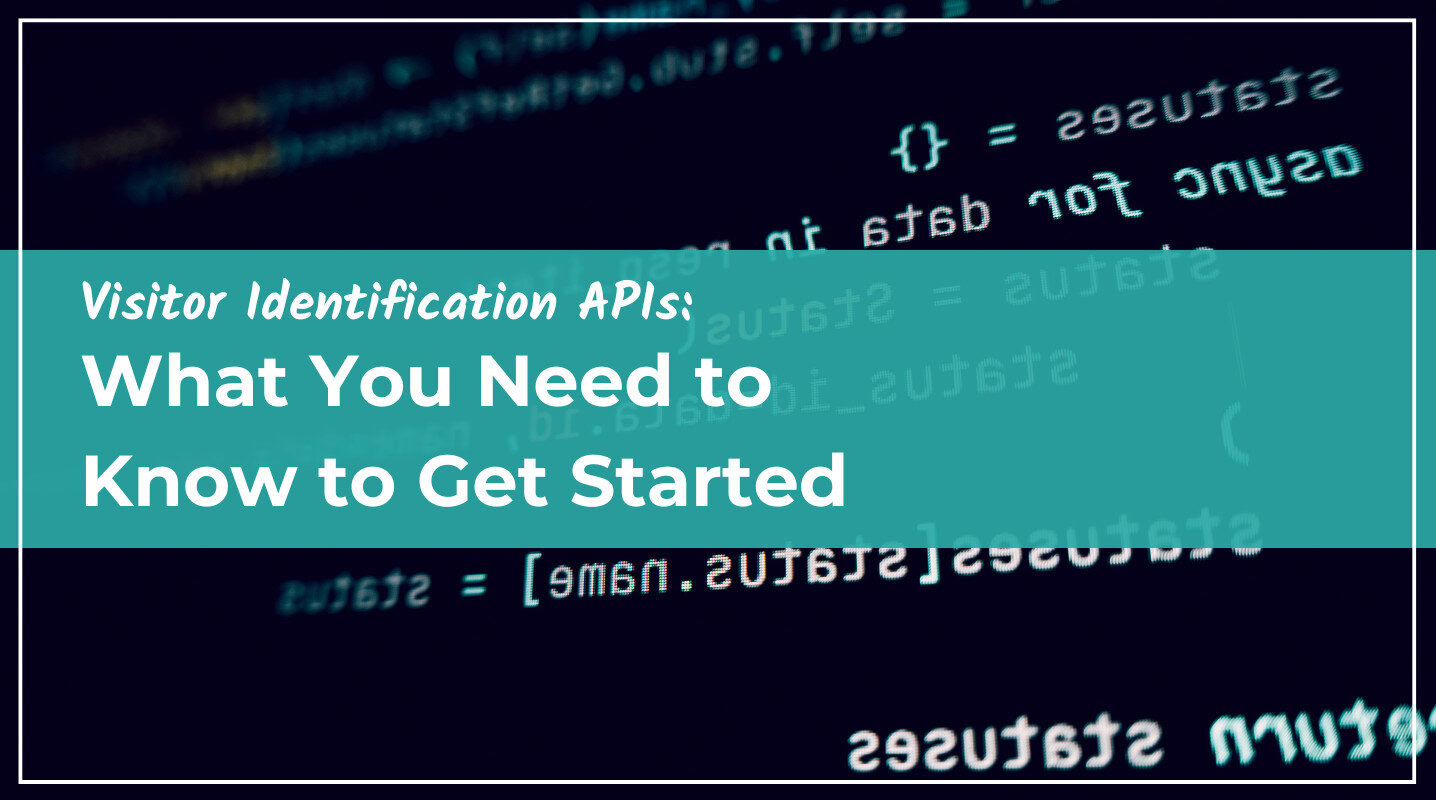Tons of people visit your website daily, but most of them leave without saying a word. No sign-ups, no purchases, not even a friendly “hello.” Just silence. That’s revenue walking out the door!
Now imagine knowing exactly who those visitors are – their names, emails, company info, and more – all before they bounce. Sounds pretty awesome, right?
Here’s the catch. Most visitor identification tools stop short. They give you some data but don’t offer an API to seamlessly connect it with your workflows.
That’s where Customers.ai comes in.
With a fully-featured visitor identification API, you can stop guessing and start taking action.
Let’s break it down.
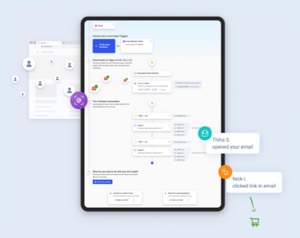
See Who Is On Your Site Right Now!
Get names, emails, phone numbers & more.
Try it Free, No Credit Card Required
What Is a Website Visitor Identification API?
A website visitor identification API gives you direct access to data about who’s visiting your website.
It pulls details like names, emails, and company information from your traffic and makes it available for use in other tools and platforms you rely on.
Here’s how it works – the API collects visitor data in real-time and integrates it into your CRM, marketing software, or custom workflows. This allows you to act on that information instantly. Whether that’s personalizing a campaign, scoring leads, or alerting your sales team.
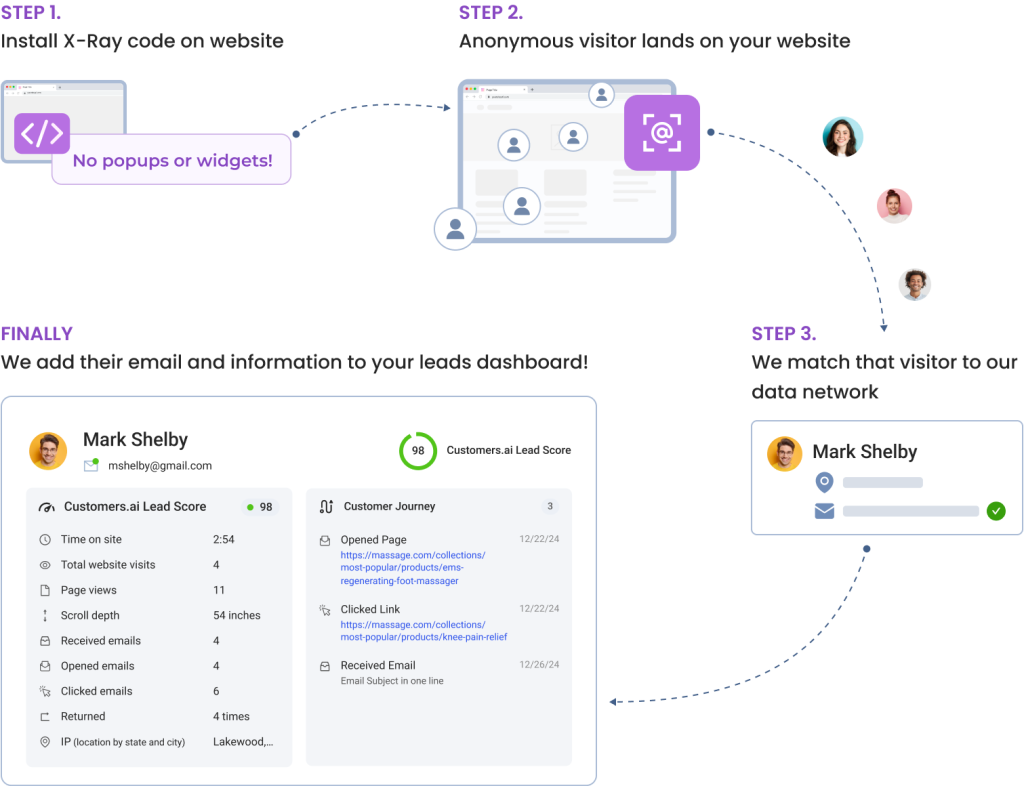
Use cases include:
- Real-time alerts: Notify your team the moment a high-value prospect visits.
- Personalization: Tailor your outreach based on visitor profiles.
- Lead qualification: Focus your efforts on the most promising opportunities.
An API makes the process seamless, giving you the power to turn traffic into tangible results without manual effort.
The Big Problem: Most Visitor Identification Solutions Don’t Have APIs
Did you know that none of the major visitor identification providers offer an API? It’s true!
These visitor identification tools look great on the surface but fall short where it really matters.
While they may give you some basic data about who’s visiting your site, they stop there.
Why do so many tools skip the API?
Simple: building and maintaining a reliable API takes resources, expertise, and a commitment to giving users full control over their data.
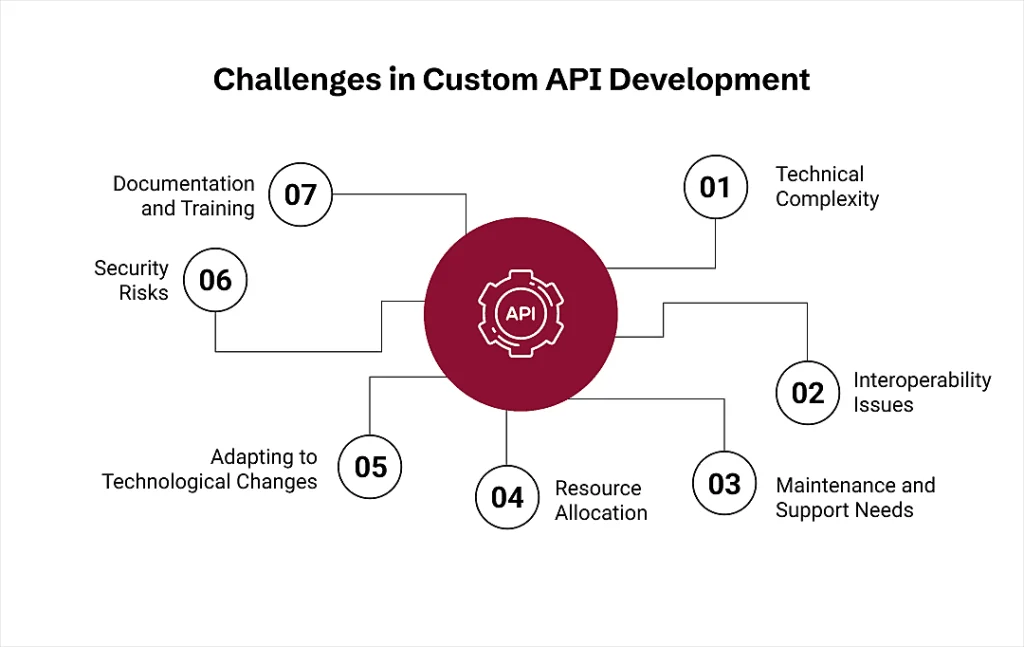
Unfortunately, many providers would rather keep things locked into their platforms, forcing you to work around their limitations.
Without an API, you’re left dealing with:
- Manual exports: Constantly downloading and uploading spreadsheets – time you’ll never get back.
- Lack of customization: You’re stuck using their system, even if it doesn’t fit your workflow.
- Siloed data: Your information can’t talk to other tools, leaving you with disconnected processes.
This is where Customers.ai changes the game.
Unlike other tools, Customers.ai offers a fully-featured visitor identification API that puts you in control.
It integrates directly with your CRM, marketing software, and other systems so you can stop wasting time and start turning data into results.
What Makes a Great Visitor Identification API?
When it comes to visitor identification APIs, you need one that meets your specific needs. Here’s what to look for in a top-notch solution:
Real-time Data Access
The best APIs deliver anonymous visitor data the moment someone lands on your site. Waiting hours (or even minutes) means missed opportunities.
Real-time access ensures you can act instantly. Whether it’s notifying your sales team or personalizing a visitor’s experience, time is of the essence.
Easy Integration
A great API plays well with others. It should connect seamlessly with your existing tools (think CRMs, marketing platforms, analytics dashboards, etc.) without requiring a degree in rocket science to set up.

Security and Compliance
Handling visitor data comes with responsibility. Look for APIs that prioritize compliance with regulations like GDPR and CCPA to protect both your business and your customers.
Scalability
As your business grows, so should your API. A solid solution can handle increasing traffic and data without breaking a sweat, ensuring it supports your long-term goals.
The term ‘API’ is thrown around a lot but remember that they are more than just a convenient feature – they’re the key to unlocking the full potential of your visitor data. They eliminate silos, streamline workflows, and make sure you’re getting the most value from every click on your website.
And a great visitor identification API doesn’t just capture data. It takes that data, enriches it, and transforms it into opportunities you can act on immediately
How to Choose the Right Visitor Identification API for Your Business
Not all APIs will be the right fit for your business, so choosing the best one requires a thoughtful approach. Here’s what to consider:
- Assess your needs: Start by looking at your business size, goals, and existing tech stack. Are you focused on lead generation, sales, or customer insights? Do you need a solution that integrates with specific tools or scales as you grow? Understanding your requirements will help narrow down your options.
- Evaluate API documentation and support: Clear, detailed documentation is non-negotiable. It should be easy for your developers to get started without hitting roadblocks. Bonus points if the provider offers active support to troubleshoot issues or guide you through complex integrations.
- Prioritize updates and reliability: A solid API isn’t static. It evolves with the times. Look for a provider that actively updates their API to keep pace with new tech and regulations. Reliability is just as crucial. You need an API that performs consistently, even during peak traffic.
By considering these factors, you’ll be able to choose an API that fits seamlessly into your business, keeps your data flowing, and delivers the results you need.
When in doubt, go for a solution like Customers.ai, where reliability, flexibility, and developer support are baked in.
Spotlight: The Customers.ai Website Visitor Identification API
When it comes to visitor identification APIs, Customers.ai is in a league of its own.
While most solutions stop short of offering robust API functionality, Customers.ai gives you the tools you need to connect, act, and grow…all without breaking a sweat.
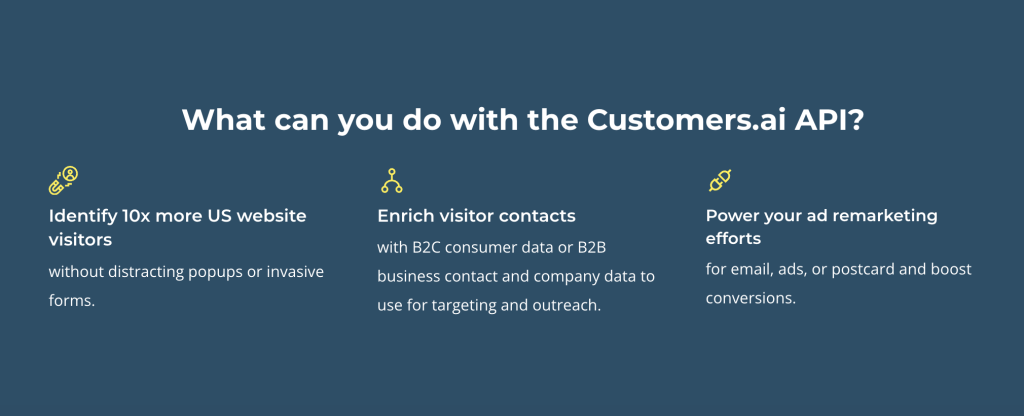
Here’s what makes it stand out:
- Fully-featured API for developers: The Customers.ai API isn’t just a bolt-on feature, it’s a comprehensive solution built to adapt to your needs. Whether you’re syncing data with your CRM or integrating with custom workflows, it’s designed to give developers full flexibility.
- Seamless integrations: Customers.ai plays nice with the tools you already use, from CRMs to marketing platforms. Its API ensures smooth, hassle-free connections, eliminating data silos and manual processes.
- Real-time data sync: With Customers.ai, you’ll never miss a moment. The API captures visitor information in real time, giving you the power to act instantly – whether that means scoring a lead or triggering personalized outreach.
How Businesses Are Using Customers.ai
- Lead scoring: Automatically prioritize high-value leads based on visitor activity and profile details.
- Personalized outreach: Send tailored messages to prospects at the perfect moment, increasing engagement and conversions.
- Sales team alerts: Notify your team in real-time when key prospects visit, so they’re ready to close deals faster.
Want to see it in action? Check out the API page to explore its full capabilities and start turning your website traffic into sales.
Why Visitor Identification APIs Are a Must-Have for Staying Competitive
If you’re serious about getting the most out of your website traffic, an API isn’t optional – it’s essential.
A great visitor identification API lets you turn anonymous clicks into meaningful connections, enabling you to personalize your outreach and automate your workflows.
The Customers.ai API takes it a step further, giving you real-time access to actionable data and seamless integration with your tools.
It’s not just about knowing who’s on your site, it’s about using that knowledge to grow your business.
Ready to stop guessing and start connecting? Talk to our team about getting access to our API.

See Who Is On Your Site Right Now!
Get names, emails, phone numbers & more.
Try it Free, No Credit Card Required
Important Next Steps
- See what targeted outbound marketing is all about. Capture and engage your first 500 website visitor leads with Customers.ai X-Ray website visitor identification for free.
- Talk and learn about sales outreach automation with other growth enthusiasts. Join Customers.ai Island, our Facebook group of 40K marketers and entrepreneurs who are ready to support you.
- Advance your marketing performance with Sales Outreach School, a free tutorial and training area for sales pros and marketers.
Website Visitor Identification API FAQs
What is the primary benefit of a visitor identification API?
A visitor identification API lets you go beyond anonymous traffic data, providing actionable insights like visitor names, email addresses, and company details. This enables you to personalize outreach, score leads, and automate workflows, ultimately increasing conversions and reducing manual work.
How does a visitor identification API collect data?
Visitor identification APIs collect data in real time using methods like IP matching, cookies, or third-party integrations. The API processes this data, matches it to detailed visitor profiles, and delivers it directly to your preferred tools. This ensures your team can act instantly, without delays or manual processes.
Is a visitor identification API secure?
Yes, if the API follows strict data protection protocols. Look for solutions that comply with GDPR and CCPA, offer encrypted connections, and provide clear policies on data storage and usage. These features ensure that visitor information is handled responsibly, protecting both your business and your customers.
What industries benefit most from visitor identification APIs?
Ecommerce, B2B sales, SaaS, and even healthcare companies can benefit. In ecommerce, for instance, identifying visitors can lead to personalized product recommendations and higher conversions. For B2B, the API can connect website traffic to decision-makers, speeding up the sales cycle.
What kind of data can a visitor identification API provide?
- Basic details: Names, email addresses, phone numbers.
- Company information: Industry, size, location, and revenue.
- Behavioral data: Pages visited, time spent, and actions taken.
This breadth of information allows teams to understand and act on visitor intent effectively.
How does an API improve lead scoring?
APIs deliver precise, real-time data that can be integrated into lead scoring systems. For example, if a visitor from a high-value company views your pricing page, the API can alert your team immediately, assigning a higher score to prioritize outreach.
How do APIs support personalization?
With real-time access to visitor data, you can dynamically adjust website content, emails, or ad campaigns. For example, 80% of consumers are more likely to make a purchase when brands personalize their experiences, and APIs are the backbone of making that happen.
Are visitor identification APIs scalable?
Yes, most APIs are designed to grow with your business. They can handle increasing traffic volumes without compromising performance, ensuring you maintain the same level of data accuracy and integration no matter how much your website scales.
What does real-time data mean in the context of APIs?
Real-time data means you’re getting visitor insights as they happen. This is critical for businesses looking to engage visitors before they leave. For example, using real-time data, a sales team can instantly receive alerts about high-value leads and act on them without delay.
How do APIs handle compliance with data privacy laws?
Reputable APIs follow strict guidelines to remain compliant with GDPR, CCPA, and other regulations. This includes offering opt-out options for visitors, encrypting data transmissions, and ensuring that any collected data is stored and used responsibly.
How do APIs compare to standalone visitor identification tools?
While standalone tools often trap data in their platforms, APIs allow you to integrate visitor information directly into your existing systems. This eliminates manual exports, ensures data consistency, and supports real-time actions, making them far more versatile and effective.
How do APIs improve marketing automation?
By integrating visitor data into automation tools, APIs let you trigger workflows based on visitor behavior. For example:
- Send a follow-up email to visitors who abandon their cart.
- Notify sales when a high-value lead visits your site.
- Add visitors to segmented retargeting campaigns automatically.
What role do APIs play in retargeting?
APIs allow you to collect and send visitor data to advertising platforms for retargeting. For instance, visitors who view a product but don’t purchase can be retargeted with personalized ads across Facebook or Google, increasing the likelihood of conversion by up to 70%.
What should I look for in API documentation?
Good API documentation should include:
- Clear setup instructions with examples.
- Comprehensive endpoint details.
- Error-handling guidelines.
- Contact information for developer support.
These features ensure smooth implementation and minimize downtime during integration.
How can APIs reduce manual workflows?
APIs eliminate repetitive tasks like downloading data or importing spreadsheets. Instead, they automate the transfer of information between tools, freeing up time for your team to focus on strategy rather than admin work.
How does a visitor identification API support sales teams?
By providing real-time alerts about visitor activity, APIs ensure sales teams never miss a lead. For example, if a key decision-maker from a target account visits your pricing page, the API can instantly notify the appropriate sales rep to follow up.
How do APIs impact ROI?
Businesses using APIs for visitor identification see significant returns. For example, personalized campaigns powered by APIs have been shown to drive up to 760% more revenue than generic campaigns. This level of optimization turns traffic into measurable results.
What are the risks of not using an API?
Without an API, businesses risk losing valuable time and opportunities. Manual data exports, siloed information, and delayed responses to visitor behavior can lead to missed conversions and reduced efficiency.
How does an API fit into an omnichannel strategy?
APIs unify visitor data across platforms, ensuring consistent messaging and personalization. For example, they allow you to sync data between your website, email campaigns, and ads, creating a seamless customer experience that boosts engagement and loyalty.
Why is Customers.ai’s API unique?
Customers.ai offers one of the few fully-featured visitor identification APIs on the market. It integrates seamlessly with CRMs, marketing tools, and workflows while providing real-time data, robust documentation, and excellent developer support, making it a standout solution for businesses serious about turning traffic into results.
